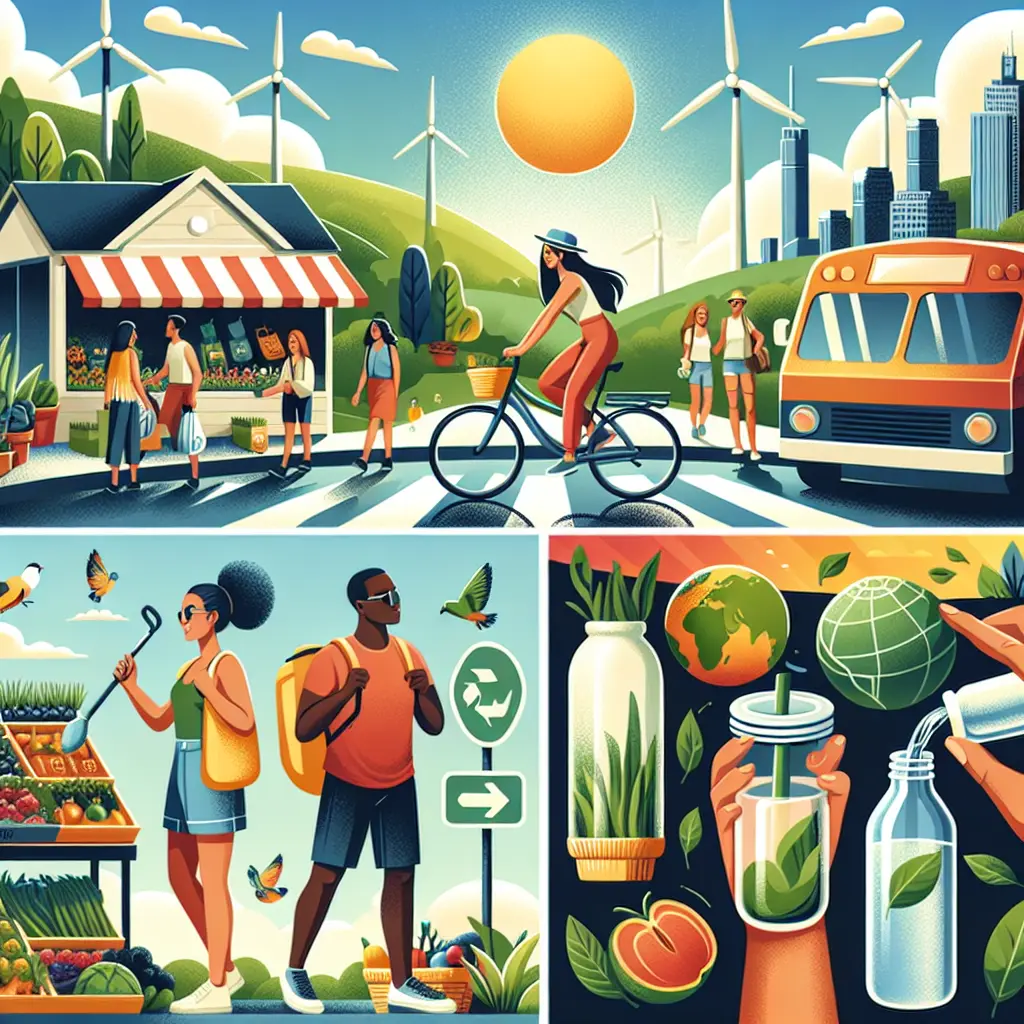In the era of global tourism, the thrill of exploring new cultures and landscapes often overshadows the considerable environmental toll associated with travel. However, as awareness grows, so does the commitment to friendly travel and the drive to minimize environmental impact. This blog post explores how travelers can adopt eco-friendly travel tips, engage in sustainable travel, and adhere to green travel practices to ensure their adventures contribute positively to the planet.
Understanding the Environmental Impact of Travel
Traveling, especially by air, significantly contributes to global carbon emissions. The aviation industry alone is responsible for around 2-3% of global CO2 emissions. The broader environmental impact of travel also includes pollution, waste generation, and disruption to local ecosystems and communities. By adopting low-impact tourism and environmentally friendly travel habits, we can help mitigate these effects.
Recent Developments in Sustainable Travel
The push for eco-conscious traveling is gaining momentum globally. For instance, the upcoming 2024 Summer Olympic Games are setting a precedent with their Purple Track, which incorporates recycled shoes into its composition, demonstrating innovation in sustainable construction materials—a principle also being explored by the Biden administration.
Practical Eco-Friendly Travel Tips
Choose Eco-Friendly Transportation Options: Opting for trains, buses, or even car-sharing can significantly reduce your carbon footprint compared to flying. For shorter distances, consider biking or walking, which not only have zero emissions but also give you a more intimate experience of your surroundings.
Support Sustainable Tourism: Engage with businesses that have credible certifications in sustainability. From eco-certified hotels to tours that prioritize local ecology and economy, your choices can drive demand for responsible travel practices.
Pack Light and Right: Reducing luggage weight saves energy across transportation modes. Additionally, packing eco-friendly products like biodegradable soaps and reusable water bottles cuts down on plastic waste.
Offset Your Carbon Footprint: While reducing emissions is preferable, carbon offsetting can compensate for your travel footprint. Invest in verified projects that reduce, avoid, or sequester emissions.
Eco-Friendly Innovations and Challenges
As we explore new technologies and initiatives aimed at reducing travel’s environmental load, it's essential to stay informed and critical. The burgeoning AI technology, although promising in optimizing various processes including travel logistics, raises concerns due to its substantial energy demands. Meanwhile, initiatives like King’s commitment to transitioning royal transport to more sustainable options by 2025 exemplify small but impactful steps towards greener practices.
Challenges like Space Debris: Emerging issues such as space debris from satellite launches highlight the complex nature of our technological advancements and their unforeseen impacts on both terrestrial and extraterrestrial environments. This underscores the importance of comprehensive planning and regulatory measures in all aspects of environmental impact.
Community and Policy Engagement: Individual actions matter, but systemic change driven by policy can enforce widespread adoption of sustainable practices. Engaging in advocacy for green policies in your community or supporting global movements for sustainable development can amplify the impact of individual efforts.
Conclusion: The Path Forward in Friendly Travel
Minimizing the environmental impact of our travels is not merely about altering travel habits but involves a holistic approach towards eco-conscious living and policymaking. By integrating responsible travel tips into our journeys, advocating for sustainable policies, and supporting innovations that facilitate eco-friendly transportation options and infrastructure, we can all contribute to a healthier planet.
As travelers and inhabitants of this world, it’s incumbent upon us to ensure that the beauty and diversity of our planet can be enjoyed by future generations. Let's commit to traveling sustainably, respecting our surroundings, and continuously seeking ways to improve how we explore this beautiful world.










Leave a Comment